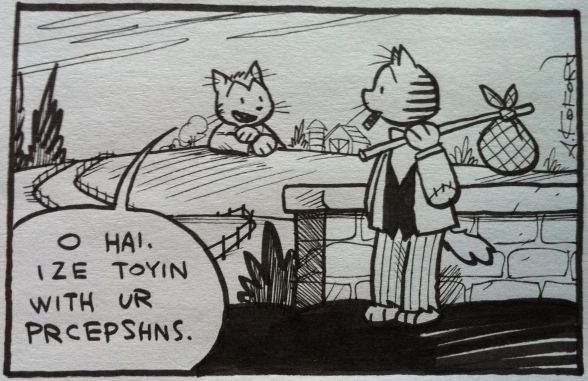Dan Bern (he has a new album out) on what I look for in writing:
The writers that I love, some of them are songwriters, but a lot of them are story writers. The best of the lot, at least my favorite ones, are not writers that write in florid strokes so much as very vivid ones, like James Thurber and Ring Lardner, Charles Bukowski, John Fante, Hemingway. They’re not writers who are so in love with their own words; the picture’s what’s important.
When I was making this record, New American Language, it was like, "Let’s be in service to the song — what do the songs want, what does the story want, what do the themes want?" It’s hard to get out of your own way. When people are trying to master their craft, it’s more about learning to get out of the way.
